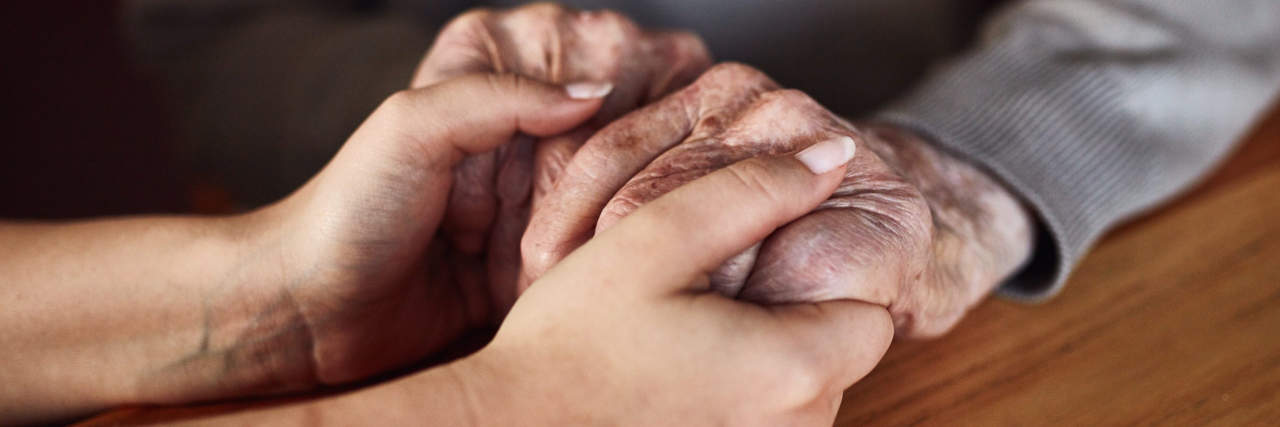Life, Love, and LEMS: One Couple’s Caregiving Journey
Editor's Note
This article depicts Phyllis and her husband’s personal experiences with Lambert-Eaton myasthenic syndrome (LEMS).
My husband and I have always been very active, so when he began experiencing weakness in his extremities, fatigue, and other neurological symptoms, we both knew something was wrong. He was no longer himself, but we could not put a name on it.
An appointment with our family doctor started a series of what felt like a million visits to health care providers who could not tell us what was going on. Some doctors didn’t know what tests to administer and others would give my husband a false diagnosis, which led to unnecessary treatment with medication that could have been dangerous for him to take.
Nobody could figure out what was going on. My husband was feeling more and more awful and we didn’t know why.
We went to all of the providers in our area and several clinics across the country. Finally, we learned the hard way that if you have a rare disease or a condition that doctors haven’t been able to explain, you have to go to the source that knows the most about it. For us, that ended up being a leading neuromuscular institution.
For us, a leading neuromuscular institution is the place to go when you don’t know what you have, and nobody else does, either. So we went, and it was an unbelievable experience. They included my husband and me in everything their team of specialists did. They kept us apprised of everything they were thinking and doing.
The definitive test to diagnose my husband’s Lambert-Eaton myasthenic syndrome (LEMS), a rare neuromuscular condition that primarily affects muscle strength and the autonomic nervous system and is usually diagnosed later in life (30+), came on the last day of our visit to the leading neuromuscular institution. We finally had an indisputable answer.
While we were relieved to finally have an answer, we were still both taken aback. We had never heard of this condition. We would come to find out that that’s one of the biggest problems with this diagnosis: no one knows what it is.
In the grand scheme of things, the whole diagnostic process only took a few months, but that’s because I’m a pest and kept bothering health care providers and facilities until we were able to see the experts in LEMS.
I was very nice about it, of course, but as a patient, you have to have an advocate who is very pushy. When you’re not feeling your best, it’s crucial to work with a strong advocate who can help you navigate the health care system as you search for answers.
As an advocate, you have to learn as much as you can about the situation and tailor your response based on that information. It can be difficult, but I try to keep an even keel and remain calm and clear-headed at all times when I’m advocating for another person.
The diagnostic process wasn’t easy, but, if I had to go back and do it all over again, I would do it the same way.
In the three years since my husband’s diagnosis, I’ve also learned that I have to take care of myself because if I don’t, I can’t take care of him. I had to have my own surgery since he’s been diagnosed with LEMS. It was a challenging period for both of us, but we made it through and learned some valuable lessons about self-care and accepting help along the way.
So now, if I want to go out with the girls for a weekend, I go. I also play golf and I’ve started playing tennis again. I love to read and try new things, so I make sure to set aside time to explore all of my interests and take care of myself, which helps me be a better partner and caregiver to my husband.
I try to go about my life as normally as I can, the same way I was before either of us had any diagnoses. Our marriage is basically the same as it always was. That’s part of maintaining that sense of normalcy. I would never treat my husband as anything less than my equal. That’s completely out of the question and I knew that from day one of his illness. He’s very independent and I encourage that. And, just like before he was diagnosed with LEMS, I’ll give him the occasional push to do things and get out of the house.
My biggest advice for caregivers at the beginning of their loved one’s health journey is to try to be positive, learn as much as you can, and know that you are capable of more than what you think you can do. You and your loved one will learn to adjust and find things to look forward to.
My husband and I are still our active selves and have plans to travel once again in the next year. While some of our hobbies may look a little different now with LEMS, we’re still able to do them, even if it’s in a slightly different way.
While we may not have imagined everything life would have thrown at us when we were married in 1988, we’re living our lives to the fullest and enjoying the journey.


